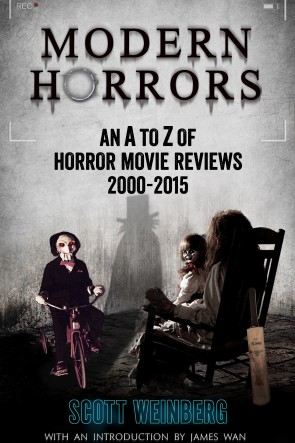Retro Review: AFTERSHOCK (2012){0}
We don’t get a whole lot of independently-produced disaster movies, and it’s pretty simple to figure out why that’s the case. Of all the action film sub-genres, the “disaster epic” is easily one of the most ambitious and expensive, and filmmakers like Irwin Allen and Roland Emmerich clearly need a whole lot of cash to deliver massive cinematic destruction on a huge scale. The fact that Nicolas Lopez’s Aftershock is, in every way, an indie disaster flick, makes it sort of unique in today’s film festival landscape, but do ambition and novelty automatically translate into a good film? In this case, it’s a mixed bag.
Produced, co-written, and starring the horror guru known as Eli Roth, Aftershock feels a whole lot like the director’s Hostel films, only instead of smug and obnoxious young people being attacked by their fellow man, this time they’re being assaulted by Mother Nature. Clearly, at least partially, inspired by the natural disasters that struck Chile in early 2010, Aftershock follows three horny guys and three gorgeous women as they party their virtual asses off in some of the swankier Chilean nightclubs, but just when this overlong introduction hits the “OK, get to it already” stage, the movie, to its credit, really does get to it.
In other words, Lopez and Roth spend just a bit too much time with their predictably horny sextet. At first it works as suspense, because we’re well aware that Aftershock is NOT a comedy about three guys (not) getting laid, but perhaps a bit more work in the editing booth could give Aftershock’s first actual shock a bit more impact. Fortunately, once we’re finished with all of the drinking, dancing, partying, and ass-ogling that serves as character development, Aftershock turns into a dark, intense, and unpredictable disaster flick that definitely has one foot planted firmly in the horror department.
The overlong first half of the film allows us to grow a little bit of affection for some of the characters, and that’s always helpful once the horrific demises start hitting the screen. Irwin Allen knew it, but Roland Emmerich does not: a “cinematic” death packs a lot more punch when you actually get to know the characters; Roth, Lopez, and lead actor Nicolas Martinez are clearly trying to build some rooting interest for their central survivors, and that’s what makes the film’s second-half bloodbaths feel more impactful than usual. Martinez plays an effortlessly amusing “rich kid” called Pollo who looks like a young Galifinakis and has a rascally confidence that keeps the first half of the film floating, even when it starts to get a little, well, redundant. (To be fair, Chilean nightclubs do look like a whole lot of fun.)
But Aftershock is most assuredly a movie of two distinct halves, and if the first segment is slight, familiar, and even a bit repetitive, then the second chunk of the flick is full-bore, fast-paced, tough, and aggressive disaster tragedy / fact-based horror film. Once the earthquake hits our characters go from horny idiots who argue about trivial junk to a group of surprisingly brave young people. Pollo, who constantly leered at young bodies a few moments earlier, becomes a natural leader. Gringo (Roth himself) is a nervous nerd who also tries to rise to the occasion when natural disaster strikes, with only minor degrees of success. And if the earthquakes, aftershocks, and crumbling buildings don’t represent enough of a threat for our young group of survivors, we soon learn that a nearby prison has been destroyed; dozens of murders and rapists are now prowling the riotous streets of Valparaiso. (If the generally impressive second half of the film displays one severe problem, it’s an extended rape scene that provides nothing but a brief splotch of leering ugliness to a darkly amusing, if tonally inconsistent, disaster flick.)
The massive tonal shift may throw confuse or even anger some viewers, as Aftershock starts to feel like a frat-boy comedy well before all the carnage and inhumanity kicks into gear, but one of Nicolas Lopez’s points is made perfectly well: tragic and horrific things can happen at any time, and come from any direction. A night of relatively innocent debauchery can sometimes contort itself into a nightmare involving rape, riots, and death on a massive scale, and it’s the simple “unpredictability” of Aftershock’s second half that makes it so interesting. The flick also boasts some truly impressive “wreckage” effects for such a relatively low-budget movie, and once it finally pops out of the nightclubs and into the frantically rumbling Chilean streets, Aftershock becomes a rather distressing horror tale about the savagery of men and the terrifying randomness of Mother Nature’s wrath.








